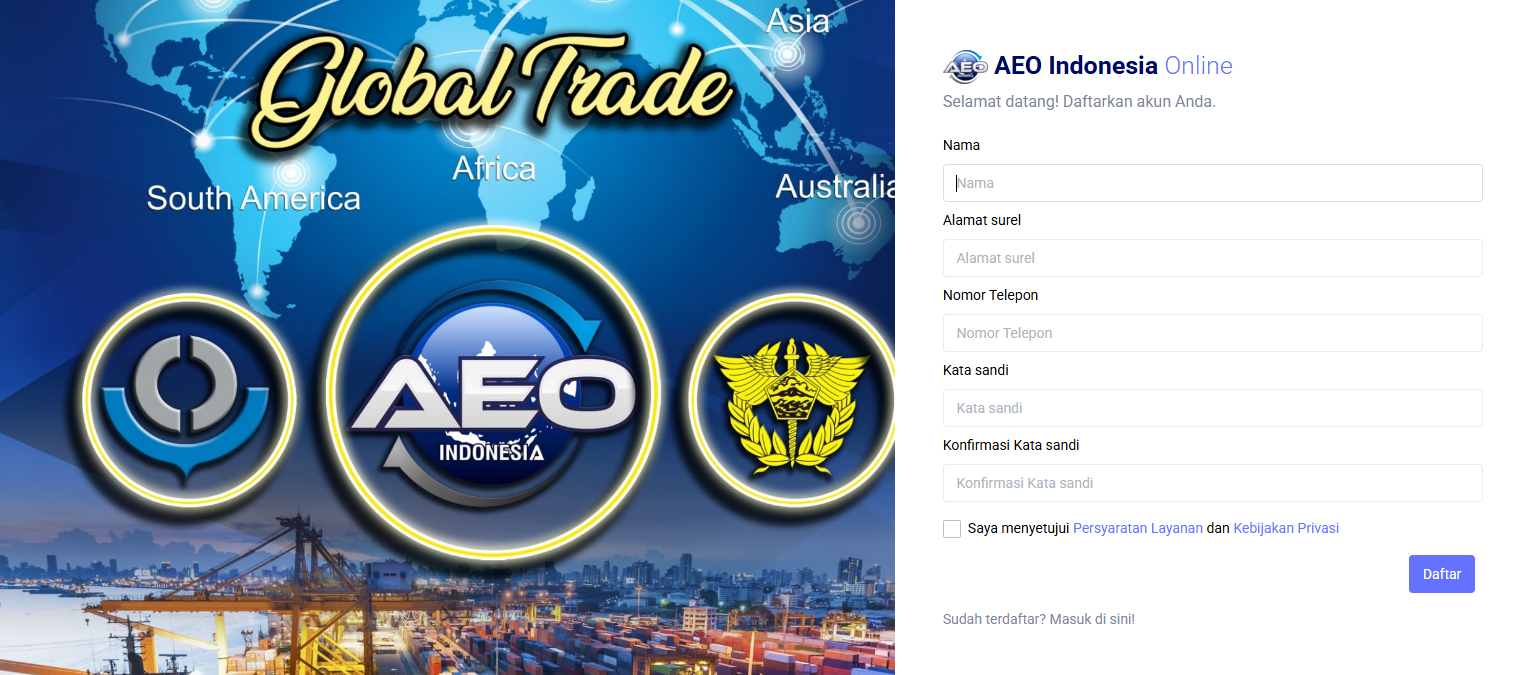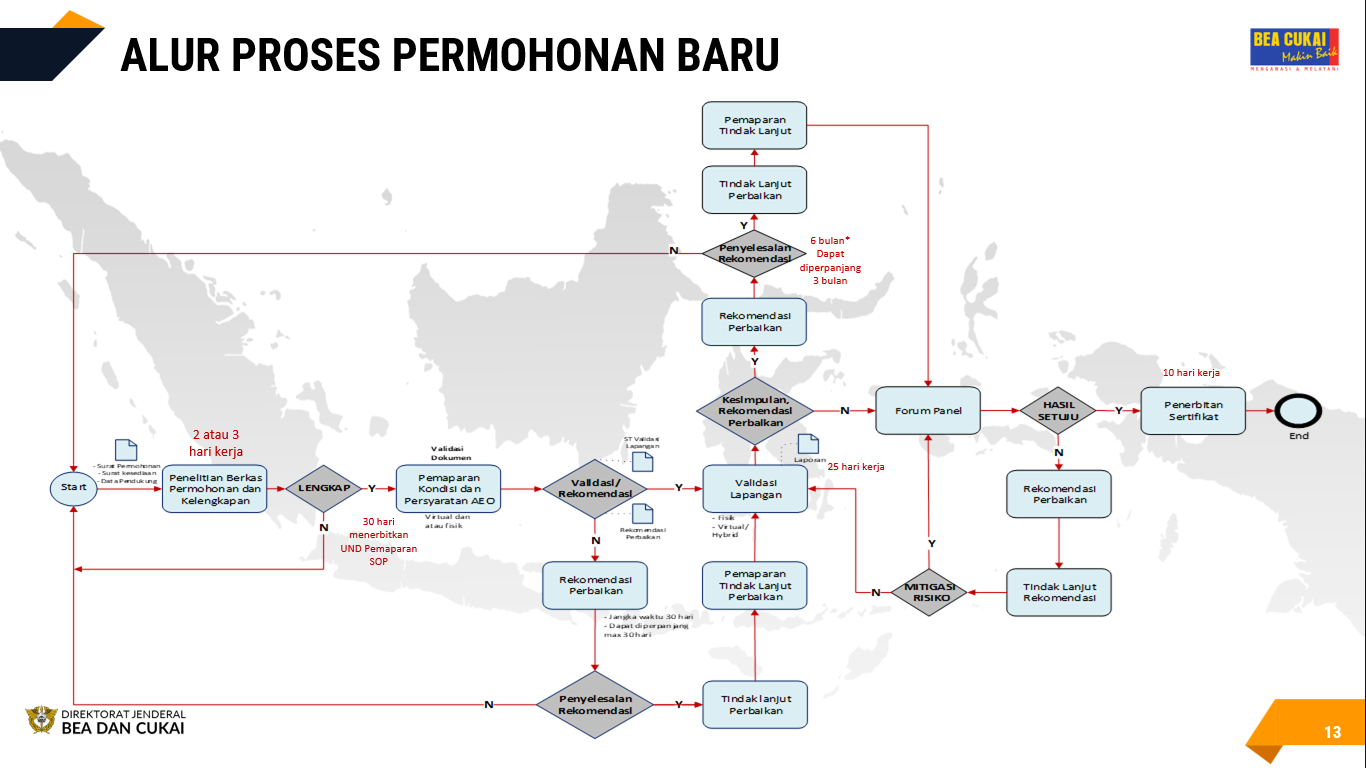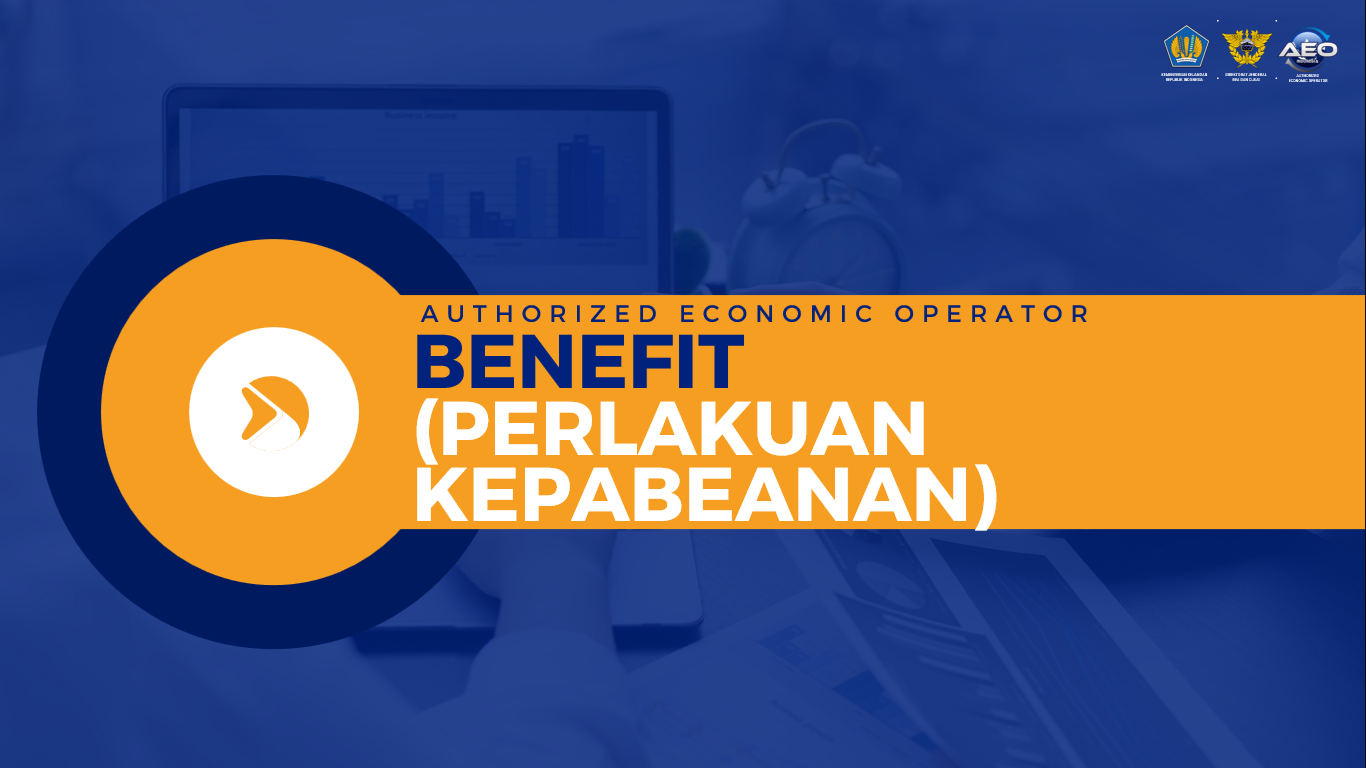AUTHORIZED ECONOMIC OPERATOR

WHAT IS AEO?
In an era of globalization and increasingly complex international trade, the security and speed of goods delivery are crucial. One initiative adopted by Indonesia and many other countries to facilitate smooth trade is the Authorized Economic Operator (AEO) program. So, what is AEO? AEO is an economic operator recognized by the Directorate General of Customs and Excise, granting them specific customs treatment.
HISTORY OF AEO
The origins of AEO trace back to the 2001 terrorist attacks—the tragic September 11 (9/11) attacks on the United States. This event not only shook the world but also had a profound impact on global security, including international trade.
In response to the need for enhanced security in global trade, the World Customs Organization (WCO) developed the Safe Framework of Standards (SAFE FOS). This initiative aimed to establish global standards integrating security and facilitation within the international supply chain. Its primary goal was to enhance certainty and ease in monitoring the movement of goods.
Recognizing the importance of implementing SAFE FOS, Indonesia acted swiftly. In 2005, the Republic of Indonesia signed a Letter of Intent to adopt the Authorized Economic Operator (AEO) concept, which is part of SAFE FOS. This concept allows economic operators who meet stringent security and compliance standards to receive specific customs benefits.
To enforce this commitment, the Indonesian government issued Presidential Instruction No. 1 of 2010, directing the implementation of AEO along with the integration of information technology to create a more investment-friendly environment. This was followed by the Ministry of Finance issuing regulations PMK 219/PMK.04/2010, PMK 227/PMK.04/2014, and PMK 137 Tahun 2023, which provided guidelines for customs treatment for AEOs.
On international platforms such as APEC, WTO, WCO, ICAO, and ASEAN, Indonesia has consistently emphasized its commitment to AEO implementation. The President of Indonesia has repeatedly underlined its importance in global forums, reinforcing support for trade security and facilitation, which ultimately boosts the country’s economic competitiveness.
AEO implementation in Indonesia is not merely a global obligation but a strategic move to ensure both security and efficiency in cross-border goods movement. By adopting AEO domestically, Indonesia strengthens its position in an increasingly interconnected and complex global trade network.
AEO VALUES AND CULTURE
The implementation of the Authorized Economic Operator (AEO) program in Indonesia is not just a technical adaptation of international standards like the SAFE Framework of Standards (SAFE FOS). It also reflects the values and culture embedded within it. Below are the core values that underpin the AEO program in Indonesia:
1. Partnership
The AEO program fosters strong collaboration between the Directorate General of Customs and Excise (DJBC) and businesses. This partnership is built on transparency and voluntary cooperation to develop initiatives and implement business practices that prioritize security in goods shipment.
2. Mutual Trust
The AEO status and customs benefits granted to companies are based on the trust DJBC places in AEO participants. This trust stems from the belief that AEO-certified businesses are committed to upholding security and compliance standards. AEO participants are expected not only to maintain but also to continuously enhance their compliance efforts, especially in their interactions with trade partners.
3. Self-Assessment
AEO participants are responsible for assessing their own compliance with security and shipping procedures. This includes communication, coordination, and consultation with relevant stakeholders, as well as the submission of accurate data and information to enhance security within the supply chain.
4. Own Responsibility
Both DJBC and AEO participants bear responsibilities to ensure the success of the AEO program. DJBC must provide a clear and supportive regulatory framework, while AEO participants must adhere to established standards and maintain operational integrity and reliability.
By internalizing these values, Indonesia’s AEO program serves not only as a mechanism to enhance trade security and efficiency but also as a joint commitment between the government and the private sector to establish a business environment that is safe, trustworthy, and compliant with regulations.
AEO OBJECTIVES AND PRINCIPLES
The Authorized Economic Operator (AEO) program in Indonesia is designed to strengthen security and efficiency in customs processes while promoting regulatory compliance based on the following principles:
1. Compliance
Compliance is a fundamental principle of the AEO program. Companies seeking AEO status must meet security and compliance standards set by DJBC or other relevant authorities. This includes compliance with international trade regulations and safety standards. Strong compliance not only ensures legal adherence but also creates a safer environment for the entire supply chain and the global community.
2. Certification
The AEO certification process involves a thorough audit and evaluation of a company’s security, risk management, and operational procedures. Achieving certification demonstrates that the company meets the required standards and is officially recognized by DJBC. This certification legitimizes the company as a secure and reliable supply chain partner.
3. Trusted Partner
AEO status offers significant benefits in establishing partnerships in international trade. As a trusted partner, an AEO-certified company can more easily collaborate with business partners, suppliers, and customers worldwide. This is because AEO companies are recognized for their high security and compliance standards, reducing trade and shipping risks.
4. Reputation
An AEO-certified company’s reputation plays a crucial role in building a positive global image. This status signals the company’s commitment to security, integrity, and quality in its operations. Consequently, a strong reputation as an AEO can enhance competitiveness, expand market reach, and strengthen relationships with customers and business partners.
5. Customs Cooperation
The AEO program fosters improved collaboration between businesses and DJBC. Companies with AEO status benefit from fewer inspections and priority customs clearance, reducing both costs and processing time for imports and exports. This ultimately boosts overall operational efficiency.
-

HOW TO REGISTER AN ACCOUNT WITH TWO-FACTOR AUTHENTICATION (2FA) IN AEO INDONESIA ONLINE
Access the Registration PageOpen your browser and navigate to the AEO Indonesia Online application's -

AUTHORIZED ECONOMIC OPERATOR
WHAT IS AEO?In an era of globalization and increasingly complex international trade, the security an -

HOW IS THE CERTIFICATION PROCESS SO THAT A COMPANY CAN GET AN AEO CERTIFICATE?
REVIEW OF APPLICATION FILE AND DOCUMENT COMPLETENESSFor submitted applications, a validator will be -

WHAT ARE THE BENEFITS OF GETTING AEO CERTIFICATE?
An Authorized Economic Operator (AEO) who has been recognized is granted certain customs treatment. -

TERMS AND CONDITIONS FOR FULFILLING THE CONDITIONS AND REQUIREMENTS OF A CERTIFIED ECONOMIC OPERATOR (AUTHORIZED ECONOMIC OPERATOR)
1. Compliance with the Provisions of Customs Regulations and Related Legislation a. Has a good compl